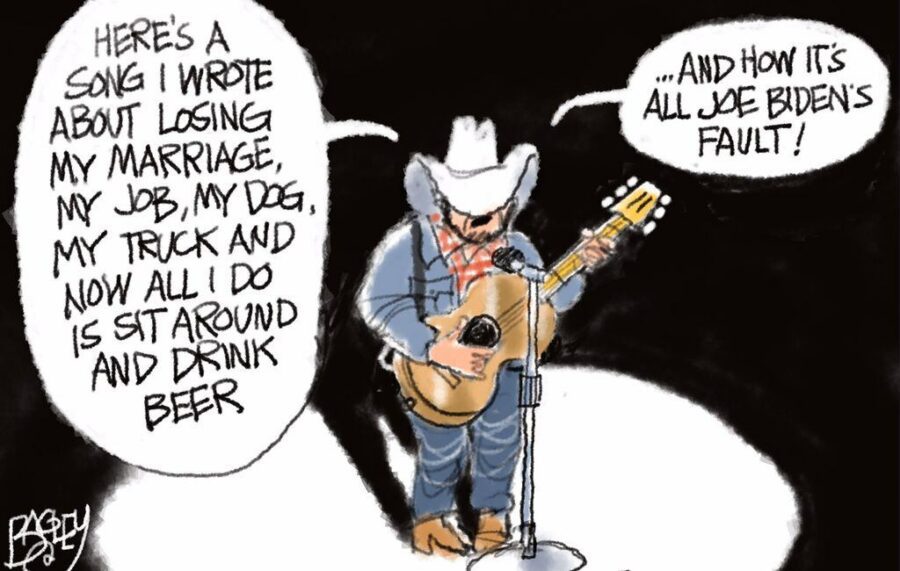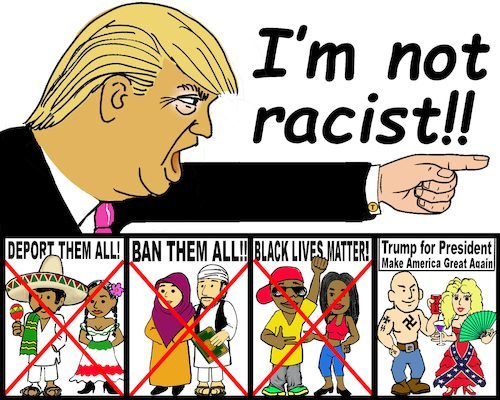
There’s been a lot of talk on mainstream news and social media about “white rural rage.” Supposedly, rural communities are hotbeds of racism, misogyny, violence, and rage. Supposedly, rural communities are awful places to live, populated with ill-bred, uneducated, knuckle-dragging Neanderthals. Rural people are hopeless and helpless, with wrong ideas about the world.
As I read these caricatures of me and my neighbors, I wonder if the people making them have actually talked to rural people? When I hear Chris Hayes and other talking heads on MSNBC say that my people don’t understand economics; that the economy is booming; that the macroeconomic numbers say that life is grand for rural folks, I want to scream. Again, I ask Hayes and his fellow liberals, “Have you actually talked to people you think are too dumb or too influenced by Trump to really understand what is going on?” I doubt it.
I will soon turn sixty-seven years old. I was born in the rural northwest Ohio community of Bryan. I have spent most of my life living in rural communities throughout northwest and southeast Ohio. I am 100 percent country — proudly so. There was a time when rural Ohio was decidedly blue. Democrats routinely won state and local elections. Those days are long gone, and have been years before the fascist Donald Trump arrived on the scene. So what’s changed?
There was a time when well-paying union jobs were common. Those days are gone. Scores of factories have closed their doors. Factories that once had thousands of employees, now have hundreds. Who is to blame for this? Not the workers. The blame rests solely at the feet of federal and state officials. International trade agreements signed first by Bill Clinton and continued by every president since then, have destroyed rural economies.
There was a time when rural downtowns were booming. Those days are gone, and have been since the late 1980s. Who is to blame? State and local politicians, who sold their souls to big box corporations and restaurant franchisees. Politicians handed out billions of dollars of tax abatements and free infrastructure improvements to these predatory corporations, all the while letting their downtowns and small businesses die.
There was a time when small family farms dotted the rural landscape. Those days are gone. Corporate farming and concentrated animal feeding operations (factory farms) dominate the scene, often polluting the air and fouling waterways. Who is to blame? Capitalistic-driven politicians who think “bigger is better.” Now farmers are forced to get bigger to survive, turning a blind eye to animal welfare and the destruction of soil.
There was a time when rural high school graduates went to college and returned to work in their home communities after graduation. Those days are gone. Now our children leave and don’t return. Why? A lack of well-paying jobs. My oldest son is an upper-level manager at a large local manufacturing concern. He has numerous employees with four-year degrees running machines for him. They left, got an education, and triumphantly returned home, thinking well-paying jobs awaited them. Instead, they make $15-20 an hour while trying to pay off $50,000-$100,000 or more in student loan debt. Their school guidance counselors sold them a bill of goods. Education is the door to prosperity, they were told, only to learn that their counselors, teachers, and parents lied to them.

Every aspect of rural life has changed. Wages are stagnant or in decline, but prices, across the board continue to increase — especially healthcare. Our only saving grace is that housing, food, and transportation costs are generally lower than in cities or urban areas. But even here, housing prices are increasing, making it harder for people to find affordable apartments and homes. Corporate healthcare companies have scooped up local hospitals and medical practices, driving up prices and making it harder for residents to get care. Poor people, in particular, face long wait times to get appointments with doctors who take Medicaid — if they can even find one. Need a dentist? Good luck with that. Not one dentist locally accepts Medicaid, forcing poor people to go to Toledo or Fort Wayne for care, often waiting months to see a dentist.
Rural people share some of the blame for what has happened to them. Slash and burn Republicans have repeatedly cut taxes, destroying local tax bases, yet rural residents continue to vote them into office. It infuriates me that so many of my neighbors vote against their own self-interest. Why don’t they vote for Democrats? Would you vote for people who routinely disparage you, talk down to you, and call you names? Democrats have lost all touch with rural America, and in doing so, ceded the rural communities, counties, and states to right-wing extremists.
Rural people are largely religious — Christian. Most of them don’t attend church on any given Sunday, but when asked they will affirm their love for God and the Bible. The current culture wars loom large in rural communities, and this helps fuel discontent (though not to the degree that MSNBC would have you believe). Instead of engaging rural folks on these issues, what do Democrats do? They largely ignore them or call them names.
Most of the blame for what has befallen rural Americans rests on the shoulders of local, state, and federal politicians. Laws and policies routinely cause harm, as money for school and infrastructure improvements dries up. If rural people feel forgotten, it is because they have been.
If Democrats ever hope to effect change in rural America, then they must come to where we live and talk to us. Senator Sherrod Brown is running for reelection. Great guy. I will vote for him in November. Yet, at a community meeting in support of Brown’s election on Friday, Sherrod will not be in attendance. Instead, his brother will speak on his behalf. That doesn’t cut it. I want to see the guy who wants my vote. Of course, Brown knows that he will likely only get 30-40 percent of the local vote. Why bother, right? If Democratic politicians don’t “bother,” they are, in effect, giving up, consigning us to more Republican rule. This is the kind of thinking, by the way, that lost Hillary Clinton the 2016 presidential election.
The reasons for the decline of rural America are complex and many. However, telling us that we are racist, misogynistic violent, rage-filled county hicks is not helpful, and it only fuels the disdain rural folks have for liberals, progressives, and city folks. It is doubtful that rural northwest Ohio will turn blue any time soon, but inroads can be made through honest interaction, debate, and discussion. At the very least, opposing sides will understand where the other is coming from.
Let me conclude this post with a letter to the editor written in 2017 by essayist and agrarian Wendell Berry (my favorite author):
To the Editors:
Since the 2016 election, urban liberals and Democrats have newly discovered “rural America,” which is to say our country itself beyond the cities and the suburbs and a few scenic vacation spots. To its new discoverers, this is an unknown land inhabited by “white blue-collar workers” whom the discoverers fear but know nothing about. And so they are turning to experts, who actually have visited rural America or who previously have heard of it, to lift the mystery from it.
One such expert is Nathaniel Rich, whose essay “Joan Didion in the Deep South” offers an explanation surpassingly simple: over “the last four decades,” while the enlightened citizens of “American cities with international airports” have thought things were getting better, the “southern frame of mind” has been “expanding across the Mason-Dixon line into the rest of rural America.” As Mr. Rich trusts his readers to agree, the “southern frame of mind” is racist, sexist, and nostalgic for the time when “the men concentrated on hunting and fishing and the women on ‘their cooking, their canning, their ‘prettifying.’…”
This is provincial, uninformed, and irresponsible. Mr. Rich, who disdains all prejudices except those that are proper and just, supplies no experience or observation of his own and no factual and statistical proofs. He rests his judgment solely upon the testimony of Joan Didion in her notes from a tour of “the Gulf South for a month in the summer of 1970.” Those notes contain portraits of southerners whom “readers today will recognize, with some dismay and even horror” because (as Mr. Rich seems vaguely to mean) southerners have not changed at all since 1970. The Didion testimony alone is entirely sufficient because she “saw her era more clearly than anyone else” and therefore “she was able to see the future.”
What is remarkable about Mr. Rich’s essay is that he attributes the southernization of rural America, and the consequent election of Mr. Trump, entirely to nostalgia “for a more orderly past,” without so much as a glance at the economic history of our actual country. The liberals and Democrats of our enlightened cities, as Mr. Rich rightly says, have paid little or no attention to rural America “for more than half a century.” But it has received plenty of attention from the conservatives and Republicans and their client corporations. Rural America is a colony, and its economy is a colonial economy.
The business of America has been largely and without apology the plundering of rural America, from which everything of value — minerals, timber, farm animals, farm crops, and “labor” — has been taken at the lowest possible price. As apparently none of the enlightened ones has seen in flying over or bypassing on the interstate highways, its too-large fields are toxic and eroding, its streams and rivers poisoned, its forests mangled, its towns dying or dead along with their locally owned small businesses, its children leaving after high school and not coming back. Too many of the children are not working at anything, too many are transfixed by the various screens, too many are on drugs, too many are dying.
In a New York Times Op-Ed, A. Hope Jahren writes: “Farm policy hasn’t come up even once during a presidential debate for the past 16 years.” But the problem goes back much farther than that. It goes back at least to Eisenhower’s secretary of agriculture, Ezra Taft Benson, who instructed American farmers to “get big or get out.” In effect that set the “farm policy” until now, and thus sealed the fate of the decent, small, independent livelihoods of rural America. To that brutally stated economic determinism I know that President Clinton gave his assent, calling it “inevitable,” and so apparently did Mrs. Clinton. The rural small owners sentenced to dispensability in the 1950s are the grandparents of the “blue-collar workers” of rural America who now feel themselves to be under the same sentence, and with reason.
It is true that racism, sexism, and nostalgia have counted significantly in the history of rural America until this moment. But to attribute the approximate victory of Mr. Trump only to those “southern” faults, and to locate them only in rural America, is a driblet of self-righteous ignorance.
Wendell Berry
Port Royal, Kentucky
Bruce Gerencser, 68, lives in rural Northwest Ohio with his wife of 47 years. He and his wife have six grown children and sixteen grandchildren. Bruce pastored Evangelical churches for twenty-five years in Ohio, Texas, and Michigan. Bruce left the ministry in 2005, and in 2008 he left Christianity. Bruce is now a humanist and an atheist.
Your comments are welcome and appreciated. All first-time comments are moderated. Please read the commenting rules before commenting.
You can email Bruce via the Contact Form.










